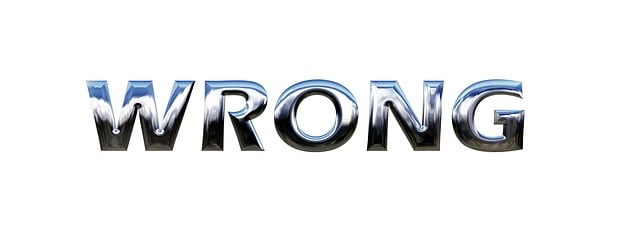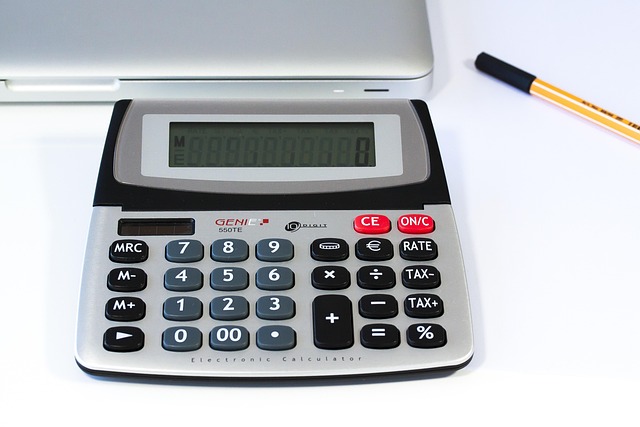To choose the right business insurance, start with a comprehensive risk assessment of your property and industry-specific hazards. Evaluate various policy types like general liability, professional liability, property insurance, and workers' compensation based on unique business needs. Understand deductibles, coverage limits, and exclusions to tailor policies effectively. Prioritize policies offering business interruption coverage and choose reputable insurers. Regularly review and update insurance as your business evolves to ensure adequate protection against shifting risks.
Choosing the right business insurance for your commercial property is a crucial step in protecting your investment. This comprehensive guide navigates the complex landscape of commercial insurance, equipping you with insights on understanding unique risks, exploring policy types, and tailoring coverage. By assessing needs, comparing quotes, and reviewing add-ons, you’ll ensure your business is shielded against unforeseen events. Learn how to interpret deductibles, limits, and exclusions, and discover best practices for claims management and regular policy updates, ultimately selecting the perfect fit for your establishment.
Understanding Your Commercial Property's Unique Risks

When considering how to choose the right business insurance, it’s crucial to start by understanding the unique risks associated with your commercial property. Unlike personal homes, businesses face a myriad of potential hazards that can vary widely depending on industry and location. For instance, a retail store might be more vulnerable to theft or vandalism, while an office building could face increased liability risks from slip-and-fall incidents.
Performing a thorough risk assessment is essential in this process. Review past incidents or claims at your property, consider the nature of your business operations, and don’t overlook external factors like weather patterns common to your area. This information will help you identify specific coverage needs and ensure that your insurance policy is tailored to mitigate these unique risks effectively.
Types of Business Insurance Policies: A Comprehensive Overview

When considering insurance for your commercial property, understanding the various policy types is crucial to making an informed decision on how to protect your business. The right coverage will safeguard your assets, employees, and customers against unforeseen events. Among the key options are general liability insurance, which covers claims of bodily injury or property damage; professional liability insurance, designed to protect against errors and omissions in services; property insurance, which insures buildings, equipment, and inventory; and workers’ compensation, mandatory in many jurisdictions, covering medical expenses and lost wages for employees who sustain work-related injuries.
Each type of policy serves a unique purpose, catering to distinct risks inherent in different businesses. For instance, while general liability is essential for most operations, specialized industries like healthcare or construction may require additional coverages like professional liability or equipment coverage, respectively. Assessing your business’s specific needs and potential hazards will help guide your selection process, ensuring you choose the right insurance that aligns with How to Choose the Right Business Insurance principles.
Assessing Your Business Needs and Coverage Gaps

When choosing the right business insurance, assessing your unique business needs and identifying coverage gaps is a crucial first step. Every commercial property faces different risks, from natural disasters to theft or liability issues. Start by evaluating your premises, the value of your assets, and potential hazards specific to your industry. Consider frequent occurrences like equipment malfunctions, customer injuries, or data breaches that could lead to costly lawsuits.
Next, examine your business’s financial health and legal obligations. Determine your liability limits, considering the potential costs of damage, medical bills, or settlements. Also, think about business interruption risks and whether you need coverage for lost income during closures or recovery periods. By understanding these aspects, you can make informed decisions to ensure your insurance policy aligns with your business’s specific requirements, providing comprehensive protection.
Comparing Quotes and Policy Language: What to Look For

When comparing business insurance quotes, delve into the policy language to ensure it aligns with your property’s specific needs. Don’t be swayed by seemingly lower premiums; scrutinize the coverage limits, deductibles, and exclusions carefully. Look for policies that offer comprehensive protection against potential risks, such as fire, theft, natural disasters, and liability claims.
Focus on understanding what is covered and what is excluded. Check if the policy includes business interruption coverage, which can provide financial protection during periods of decreased revenue due to insured events. Additionally, pay attention to the reputation of the insurance provider. Opting for a well-established company with positive reviews demonstrates reliability and ensures you have a support system in place when filing claims.
The Importance of Customized Coverage for Your Industry

When selecting business insurance, one of the most crucial factors is tailoring coverage to your specific industry needs. Not all businesses operate in identical environments or face comparable risks. A restaurant faces different challenges than a manufacturing facility, for instance. Customized coverage ensures that you’re protected against industry-specific perils.
How to Choose the Right Business Insurance involves assessing unique risk factors and selecting policies that align with them. This means considering not just general liability but also specialized coverages like property damage, business interruption, professional liability, and workers’ compensation, among others. By closely examining your operations and potential risks, you can build an insurance policy that offers comprehensive protection without including unnecessary components.
Reviewing Optional Add-Ons and Amendments

When considering how to choose the right business insurance, reviewing optional add-ons and amendments is a crucial step. Many standard policies offer customizable features that can significantly impact your coverage. For instance, additional coverages like extended property damage, business interruption, or professional liability might be available as add-ons. These can protect against unforeseen events such as natural disasters, equipment failure, or legal issues arising from professional negligence.
Evaluating these add-ons and amendments allows you to tailor your insurance policy to your specific business needs. Consider what risks are most pertinent to your operations and select the coverages that offer the best protection. It’s also wise to consult with an insurance broker or agent who can provide expert advice on the potential benefits and drawbacks of each optional feature, ensuring you make informed decisions for your commercial property insurance.
Understanding Deductibles, Limits, and Exclusions

When considering how to choose the right business insurance, understanding deductibles, limits, and exclusions is paramount. Deductibles represent the amount you must pay out-of-pocket before your insurance kicks in. Raising your deductible can lower premiums, but ensure it’s an amount you can afford to cover initially. Limits refer to the maximum coverage amount for specific perils like fire or theft, and choosing appropriate limits depends on the value of your property and potential risks.
Exclusions detail what isn’t covered by your policy, from natural disasters to certain business activities. Carefully review these exclusions to ensure they align with your specific needs. Understanding these key components allows you to tailor your insurance policy, balancing cost and coverage to best protect your commercial property.
How to Navigate Claims and Settlement Process Effectively

Navigating the claims and settlement process is a crucial aspect of choosing the right business insurance. When a loss or damage occurs, understanding your policy coverage and the steps involved can significantly impact the outcome. Start by reviewing your policy documents thoroughly to identify the types of losses covered and any specific exclusions. Many policies require immediate notification of a claim, so ensure you have the contact details of your insurer readily available.
Effective communication is key during this process. Document all conversations, exchanges of information, and agreements made with your insurance provider. Keep detailed records of repairs, replacements, or alternative arrangements made while awaiting settlement. This level of preparation will not only streamline the claims process but also help ensure you receive fair compensation for any covered losses.
Regularly Reevaluating and Updating Your Business Insurance

Choosing the right business insurance is a crucial step in protecting your commercial property and future. However, it’s not a one-size-fits-all process. Regularly reevaluating and updating your coverage is essential to ensure you’re adequately protected as your business evolves. Market conditions, new regulations, and changes within your industry can all impact the risk landscape, meaning your insurance needs may shift over time.
To stay ahead, schedule annual reviews with your insurance provider or broker. Discuss any significant changes in your operations, such as expansion into new locations or the introduction of new products or services. This proactive approach will help you identify potential gaps in your coverage and make necessary adjustments to align with your current business risks.
